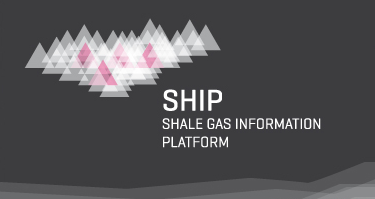German government introduces bill on hydraulic fracturing
02.04.2015
Legislation
On 1st April the German Bundeskabinett (Germany´s government) introduced a bill regulating hydraulic fracturing in Germany. The bill addresses mainly "unconventional" hydraulic fracturing in shales and coal seams. There are also some new provisions for "conventional" hydraulic fracturing (in sandstones, for producing tight gas) and for hydraulic fracturing for geothermal purposes. Note that hydraulic fracturing for tight gas was performed more than 300 times during the last decades in Germany (see report "Erdöl und Erdgas in der Bundesrepublik Deutschland", page 3), hydraulic fracturing in shale and coal seams is new to Germany.
Web links to press release and full text of the proposed legislation. The bill will now be discussed in the German Bundestag (Germany´s parliament) and may experience amendments before final approval.
Bans, restrictions, and opportunities
The proposed regulation bans any hydraulic fracturing in water protection areas. German federal states may expand the ban to areas where mineral water deposits are present, where water is extracted for the production of beverages, and where hard coal is or was mined. Any hydraulic fracturing is banned in nature reserves and national parks. For Natura-2000 areas, unconventional hydraulic fracturing is banned.
Apart from these bans, applications for hydraulic fracturing can be submitted to the respective administration for target rock formations below 3.000 m depth. There are new, stricter provisions for such activities, e.g. a compulsory Environmental Impact Assessment (more, see below).
Unconventional hydraulic fracturing in target rock formations above 3.000 m is banned for the time being. However, companies my apply for drilling test wells and apply hydraulic fracturing for research purposes. This research must aim for assessing the impact of hydraulic fracturing on the environment and will be performed under the supervision of an independent expert group that will be established by the German government. The expert group will publish yearly reports, the first one on 30. July 2018. In case the expert goup judges (by the majority) the application of hydraulic fracturing in a certain geological formation as acceptable in principle, the competent administration may grant permission even for purely commercial hydraulic fracturing.
Apart from the above provisions the new regulation will impose the following restrictions on all types of hydraulic fracturing:
- only non or low hazardous fracturing fluids may be used
- a comprehensive report on initial environmental conditions is compulsory
- identity and volume of all substances and mixtures used in hydraulic fracturing operations must be published in the internet
- Monitoring of ground and surface waters is compulsory
- Monitoring of produced waters, flowback, and wellbore integrity is compulsory
There are further provisions regarding the underground disposal of produced water from exploration or production of petroleum and regarding liabilities. For damages related to hydraulic fracturing or deep well drilling, the operator has to prove that the damage is not related to operations performed, e.g. hydraulic fracturing. The burden of proof will thus be in the future with the operator, not with the claimant.





